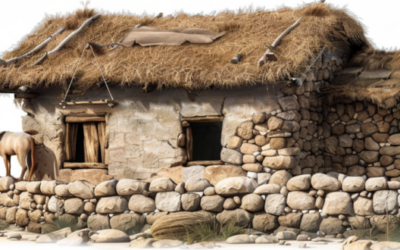A contradiction occurs when two (or more) statements on a topic cannot both be true at the same time and in the same sense. For instance, let’s look at the statements “I am walking my dog,” and “I am not walking my dog.” Both statements cannot both be true at the same time and in the same sense. They are mutually exclusive. However, the following is not a contradiction: “Bob saw two people get out of the 1967 black Camaro,” and “Frank saw three people get out of the 1967 black Camaro.” These statements are not mutually exclusive because both statements can be true at the same time. Bob may have been at an angle where he was only able to see two people, whereas Frank could have been at a different angle where he was able to see three people. Both statements can be true at the same time and in the same sense without excluding the other.
Furthermore, statements are contextual. Poetry makes statements that can seem contradictory but are not. Biblical narratives often present different scenarios of the same event. Different writers might include or exclude different facts about the same subject, i.e., the resurrection of Christ. with a contradiction occurs when one statement makes another impossible.
When critics of the Bible offer contradictions, they very often fail to examine the context and apply the Law of non-contradiction properly. A typical issue that the critics often cite as a contradiction is the manner of Judas’ death. Did he die by hanging or by falling? Matthew 27:3-8 says that Judas “went away and hanged himself.” Acts 1:16-19 says, “and falling headlong, he burst open in the middle and all his bowels gushed out.” Critics sometimes say this is a contradiction, but it is not since both statements can be true. Judas hanged himself, and then later, his body fell, and his bowels gushed out. There is no contradiction since both statements are true, and neither negates the validity of the other.
As a matter of fact, I have been to Israel and have seen the area (Jerusalem) where Judas is said to have hanged himself. It is a rather steep hillside with trees growing near the top and about a 30- to 60-foot drop under the trees – depending on the specific location. It makes perfect sense, both factually and geographically, to see that Judas hanged himself, and later his body fell headlong, and his guts came out.
So when someone raises a Bible contradiction and wants you to solve it, first ask him what a contradiction is. If he offers a competent definition, then apply it to the alleged contradiction. You’ll find that the Bible has no contradictions. If, however, you are not able to make sense of the issue, then tell the person that you will do some research and get back to him. There’s nothing wrong with that.
On the other hand, if he fails to offer a proper definition of what makes a contradiction, then ask him how he knows the Bible has contradictions when he can’t even define what a contradiction is. If he wants to attack God’s Word, then you have the right to attack his logic. Remember not to be insulting. Address the issues, not the person.
You have the privilege of being both defensive and offensive in defending the faith. You can defend the Word of God by offering explanations, but you can also go on the offensive by asking the critics to define terms and substantiate their assertions. By doing both, you’ll find your ability to defend the faith will become much easier.




